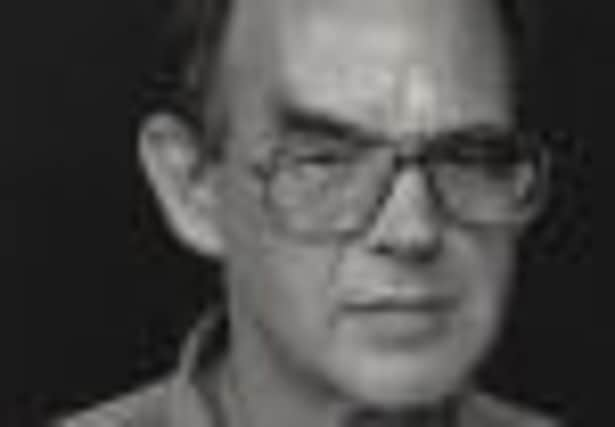Obituary: Professor Ian Kemp, distinguished musicologist who wrote revealing biography of Sir Michael Tippett


IAN Kemp was a distinguished musicologist whose academic studies on the life and music of Sir Michael Tippett did much to broaden understanding of the composer’s work. Kemp was also an authority, and published widely on, the music of Hector Berlioz and on contemporary composers such as Peter Maxwell Davies. Kemp wrote informed articles on both Hindemith and Weill.
Kemp was also a renowned teacher and lecturer and held several senior academic appointments. He is well-remembered at the music department of Aberdeen University for encouraging students to explore lesser-known works and compose music for fellow students. Kemp’s broad knowledge of music made him an ideal and learned author on many record covers – especially for the Hyperion label – and for programme notes. Kemp also built a good reputation as a composer in his own right..
Advertisement
Hide AdAdvertisement
Hide AdIan Manson Kemp was born in Edinburgh, but went south for his education – first at King Edward VI Grammar School, Chelmsford and then Felsted School. At Cambridge, he read music and studied under Robin Orr and Patrick Hadley. Kemp developed a passionate interest in contemporary music and, still only 20, travelled to Germany to visit Darmstadt with David Drew, who some years later was to work for the music publishers Boosey & Hawkes.
On coming down from Cambridge in 1954, Kemp first worked for Schott’s the music publishers for ten years and while there he formed enduring friendships with the composers Alexander Goehr, Maxwell Davies and Tippett. In 1964, Kemp embarked on a career in academia for which his temperament was ideally suited.
Kemp first joined the music department of Aberdeen University, where he proved an innovative and inspiring colleague and lecturer. Typical of his relaxed but infectious style of teaching was his address to first-year students at their first lecture. “The only thing we expect of you is that you like music.”
They then went on to study the more obscure passages of Schoenberg’s Pierrot Lunaire – a piece on which Kemp was a devoted authority from first hearing it in 1953.
While at Aberdeen, Kemp was active in introducing new music not only to his students but also to the various amateur orchestras in the city. For example, in 1964 Kemp taught Kurt Weill’s complex score for August Strindberg’s historical play Gustav. This rarely heard piece was specially recorded at Aberdeen University by students under Kemp’s direction and was much used by musicologists at lectures.
On a less serious note, Kemp was closely associated with the annual Aberdeen Student Show which is devoted to comedy, music and sketches.
He left Aberdeen and continued his academic career first at St John’s College, Cambridge, then as Professor of Music at Leeds University (1977-81) and finally at Manchester University (1981-91). His blend of wisdom, empathy, wit and immense knowledge left its mark on all these establishments and students and amateur musicians remember his generosity with his time and tuition.
One of his first important publications was a symposium he edited for Tippett’s 60th birthday in 1965 and this was extended 20 years later into an acclaimed biography of the composer’s works (Tippett – The Composer and His Music), which was a detailed and scrupulous account of Tippett’s music and life. One critic called it “intelligent and acute”. Kemp also explored Tippett’s early life in Edinburgh and education at Fettes, striking a balanced and sympathetic note.
Advertisement
Hide AdAdvertisement
Hide AdKemp became recognised as an accomplished broadcaster and played a leading part in 2005 on BBC Radio 3’s celebration of what would have been Tippett’s centenary, appearing in discussion programmes with the likes of Sir Colin Davis. The night that Tippett died, Kemp led the tributes on R3 and his skill as a broadcaster was often heard in such programmes as Kaleidoscope and Music Matters.
Denis Marks, the former artistic director of English National Opera who knew Kemp well, has written over the weekend: “For those of us who believe that Michael Tippett was among the very greatest of British 20th century composers, Ian was an invaluable source of wisdom on his music. His book Tippett: The Composer and his Music remains the most revealing and comprehensive study of the actual scores and his close friendship with the composer enabled him to penetrate deeply into his creative world. Ian will be much missed by all those who care about the ideas behind the notes.”
It is a shame that illness in his later years prevented Kemp from extending the book on Tippett to include a detailed analysis of his later compositions, but Kemp’s writing were extensive and will remain a remarkable legacy to a most influential and enthusiastic musician.
He is survived by his second wife, the conductor Sian Edwards, their son and one son and four daughters from his first marriage.
ALASDAIR STEVEN